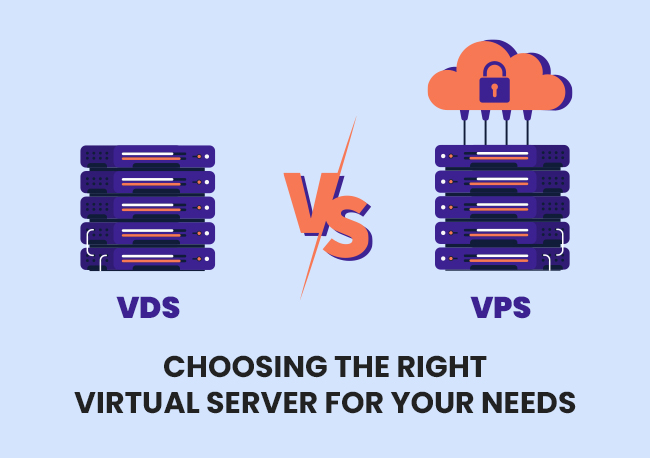‘Bandwidth’ is a self-explanatory term. The term suggests the ultimate capacity to do work. Everyone and everything has a maximum bandwidth, and if you try to exceed the same, it results in an error. The same thing applies to website bandwidth.
Upon purchasing a hosting platform, you get a pre-determined bandwidth capacity. However, many web owners tend to neglect this part, considering it unimportant. Like other aspects, bandwidth capacity is equivalently important as it ensures a quick turnaround time for the website.
But That’s Not it!
Numerous factors are affected when you don’t have sufficient bandwidth capacity, which we will discuss in this blog post. This article will give you information on what is bandwidth in web hosting and what happens when you exhaust the capacity.
Without taking much of your time, let’s move forward to understanding everything about bandwidth.
Definition of Bandwidth
Bandwidth, also recognized as network capacity, It is a technical term used for defining the overall capacity of a network or connection to transmit data in a specified time frame.
Generally, people assume internet connection and bandwidth are the same. But let us put an end to this confusion by stating they are not. Internet speed refers to the maximum speed at which a set amount of data can be shared. Whereas bandwidth is all about transmitting maximum data in an alloted period of time.
Bandwidth is usually measured in bits per second (bps). However, times have changed, and so does the measuring capacity. Today, bandwidth is measured in Mbps and Gbps.
Definition of Website Bandwidth
Bandwidth and website bandwidth are almost the same. However, the only difference is the website. Here, a specified amount of bandwidth capacity is allotted to your website upon purchasing web hosting services. This capacity allows you to wire data from the server to the users.
Generally, bandwidth capacity is allotted based on your needs. However, some hosting providers even offer unlimited bandwidth. Website bandwidth is also measured and allotted in Gigabytes (GB).
Now that you are clear with bandwidth hosting meaning. Let us explain to you why it is important for websites.
Also Read: How Much Storage Do I Need For My Website? Must-Know Factors
Why is Bandwidth Important For Websites?
The purpose of Bandwidth is the fastest data transmission in a specified time frame. Let’s give you an example to explain this situation. Supposedly, there are 2 pipes for the water supply. The first pipe is smaller than the second. Now, think about which pipe will have the heavy water pressure and faster water supply. Of course the second one because of its big size.
The same goes for bandwidth capacity. If you have sufficient bandwidth capacity, rapid data transmission is guaranteed that too in a short period of time.
Fast speed is especially vital for websites. Higher speed equates quick turnaround time of pages & website, leading to better user experience and increased traffic.
On April 09, 2010, Google announced by stating that search algorithms would prioritize websites with quick turnaround time. Meaning they will index and rank fast-loading websites at the top.
Please note – speed is not the only factor considered by Google. To rank at the top, following best SEO practices is a must.
Also Read: Top Industries That Can Benefit From SEO
Factors to Consider For Bandwidth Usage on Website
- Webpage Size
- Monthly Visitors on Website
- Daily Page Views on Website
- Average File Size on Website
- Email Usage
Bandwidth usage is not a random thing. You are supposed to consider numerous factors when choosing the adequate bandwidth capacity for your website needs.
1. Webpage Size
The initial factor you must undertake is the page size. Bandwidth usage can widely depend on the content and visuals of your website. The content and visuals here mean the Javascript for creating HTML pages, images, videos, quality of fonts, and advertisements displayed on the site.

The inclusion of large content or visuals equates to slower loading website. Hence, you must calculate the page size by monitoring them. Upon identification of the page size, you will get an idea of how much bandwidth your site will consume.
Also Read: 17 Top Technical Requirements For Your ECommerce Websites
2. Monthly Visitors on Website
The next aspect that must be focused on is the monthly visitors. Now how would you determine the monthly visitors on your site? Numerous web analytics tools are available on the internet today. All you need to do is add the URL of your website, and it will break down the total traffic on your site.

Here are some SEO tools you can use to check the monthly traffic on your site –
- Google Analytics
- Ahrefs
- SemRush
Once you get the average number of visitors on your site, calculating the bandwidth capacity becomes a piece of cake. Let’s assume you have 100,000 monthly visitors on your site, 500 GB of bandwidth capacity per month would be enough to manage your traffic.
Please note – This is just a rough estimate. The capacity will vary based on the factors we discuss in these pointers.
3. Daily Page Views on Website
How many views do you get in a day? Herein, you have to narrow down your analysis to ensure a sufficient bandwidth capacity. Like the other two factors, capacity will also be reliant on your daily page views. You can calculate daily pages through web analytics.

- Google Analytics
- Ahrefs
- Moz Pro
These tools will give you a comprehensive analysis of your daily page views. Once you get the report of your daily views, choosing a bandwidth capacity becomes a breeze.
Also Read: 15 Best SEO Audit Tools For Your Website (Free+Paid)
4. Average File Size on Website
Are there large files, brochures, documents, statistics reports, etc., uploaded on your website for web users to download? If so, estimating their size and the number of downloads per day is a must to figure out the average bandwidth capacity.

To identify the file size, you only need to add the total file size and divide it by the number of files. For example, 229 MB / 48 files = 4.77 MB per file.
5. Email Usage
The Email usage factor is inversely proportional to your usage. Meaning the number of emails you send and receive in a day will determine your usage needs. However, that’s not it. Several factors are included in this process. For instance, the size of the email, attachments used, and number of recipients.

You need to calculate these factors. Once this is done, comparing the results with the available bandwidth capacity will help you identify whether or not the emails will impact the bandwidth capacity. If that happens, consider upgrading to a higher bandwidth capacity.
If you send or receive too many emails in a day, undertaking this point is necessary. Large emails can impact the performance of your internet, especially the ones with limited bandwidth.
These were the main factors that will help in understanding the query you raised — How much bandwidth do I need for my website.
Below we are also mentioning formulas that will give you the ease of determining the bandwidth capacity for your website.
Formula 1 – Monthly Visitors * Avg Page Views * Avg Page Size = Your Bandwidth Requirement.
Formula 2 – Avg Page Views * Avg Page Size * Monthly Visitors + Download Per Day * Avg File Size = Your Bandwidth Requirement.
Previously we gave you insights on bandwidth and what factors you must consider determining bandwidth usage. The next question in line is the overuse of bandwidth.
Also Read: Why Are My Emails Going To Spam? 10 Ways To Prevent It
What Happens If I Exceed My Bandwidth?
1. Website Downtime
The most obvious drawback you will come across upon exceeding the bandwidth is website downtime. For readers who might not be familiar with the term ‘website downtime’, it means your website will be inaccessible to your site visitors.
You can regard this website outage as a serious matter, as it will affect your online presence and business. You will not only lose visitors, but also it can impact your ranking on the SERPs negatively. It will also affect your sales, and you might lose valuable clients.
Generally, this situation occurs when you receive too much traffic, and your site doesn’t have enough bandwidth to manage it. Other reasons include broken code, plugin errors, update issues, errors from the hosting provider side, expired domain, or unwanted cyber-attacks.
You can increase your bandwidth limit by consulting your hosting provider to fix this. Besides this, optimizing your website is also a great option which we will be discussing at the end of this blog.
Also Read: What Does Your Web Host Have To Do With Your SEO?
2. Additional Fees
If this point has to be explained in one sentence, it would be bandwidth exhaustion = excess usage charges or overage fees. As previously mentioned, you get a predefined bandwidth capacity from your hosting provider.
Once you exceed the same, the hosting provider will initially suspend your account and raise a ticket to inform you about exceeding the bandwidth limit.
You can resolve this issue by bandwidth optimization. If there is an improvement in the bandwidth performance, hosting providers will make your website accessible to internet users. However, if not, upgrading the plan with greater bandwidth would be the next solution.
You can either upgrade your existing hosting server by paying the additional fees or completely shift to a new server with better bandwidth.
Let’s assume that your website is currently running on shared hosting. Now your hosting provider might have multiple server plans with higher bandwidth. So, you can either upgrade your plan accordingly or shift to a different web hosting plan, such as VPS server hosting or dedicated hosting.
Now that we have given you an overview of what happens when you exceed your bandwidth. The next step is to guide you through optimizing bandwidth usage.
Also Read: How To Migrate A Website From One Server To Another
How to Optimize for Bandwidth Usage on the Website
- Compression & Optimization of Images
- Use of Content Delivery Networks
- Enable Browser Cache
- Implement Lazy Loading
- Minify CSS and JavaScript
- Performance Tools Optimization
- Monitor the Bandwidth Capacity
1. Compression & Optimization of Images
Compared to text, visuals like videos, images, advertisements, etc., take up much bandwidth. Hence, compression of the size of visuals can be done through WEBp format. This format reduces the loading time of the images on the web.
2. Use of Content Delivery Networks
CDN (Content Delivery Networks) would be a great way to distribute your website’s static content across multiple servers
This will ensure that users can access files from a server closer to their location, which directly creates a positive impact on latency and bandwidth usage and results in the reduction of such factors.
Also Read: How does server location have an impact on your website SEO?
3. Enable Browser Cache
Every time a web page is refreshed or reloaded, the browser tends to save the files in its history so that you don’t have to search that page again. This saves a lot of bandwidth.
However, if you frequently make multiple changes to your website, the browser tends to re-download those files, leading to increased bandwidth consumption. Hence to save your bandwidth, we recommend you make fewer changes to your website.
4. Implement Lazy Loading
Many websites completely load the moment you click on their link. However, it can take up a lot of bandwidth. Plus, loading everything at once is unnecessary, as users may not be interacting with your entire website.
To avoid such unnecessary consumption of bandwidth, you may directly load the page or elements only when they interact with the same.
For instance – a video will be played only when a user clicks on it. This is also known as ‘Lazy Loading’. It can save your bandwidth and improve user experience.
Also Read: How to fix a Slow Website?
5. Minify CSS and JavaScript
It would be really important to minify the CSS & Javascript. If your website consists of such files, Your developer needs to remove unnecessary characters and spaces from those CSS and JavaScript files to reduce their file size.
This will not only helps in reducing bandwidth usage but also creates faster loading of the website.
6. Performance Tools Optimization
Performance testing tools like RUM (Real User Monitoring) and Synthetic monitoring usually consume a lot of data when running on your website leading to bandwidth exertion. Although, this situation can be solved by installing a file called /status.txt.
This file contains a word called ‘OK’. This string is followed by the monitoring tools, and the process of the tools becomes less data-intensive, which can save your bandwidth to a great extent.
Also Read: Website Optimization Tips to Increase website performance
7. Monitor the Bandwidth Capacity
Bandwidth consumption can also be reduced to an extent if you keep an eye on the same. Once you launch a website, it will grow as new visitors interact with it. You can monitor the growth to ensure the additional interaction is not consuming your bandwidth too much.
Also Read: How Can You Make A Website Look More Professional?
Conclusion
Hope this blog gave you an answer to what is meant by bandwidth in web hosting.
Our last and best tip for you would be to make a wise choice. If you are spending on something important as bandwidth, it should be good enough to sustain your needs. However, this is only possible when you make the right choice. Go for a bandwidth capacity that gives you perpetual growth.




